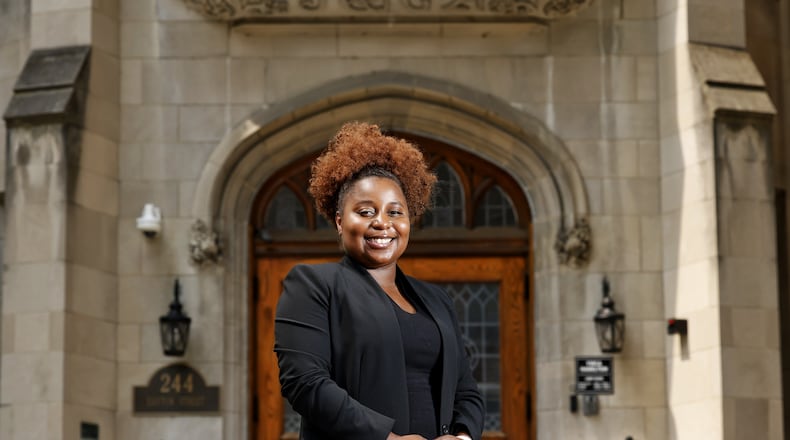“At the end of the day, we’re all impacted by the trauma of racism, and we all have a duty to eliminate it,” said YWCA Hamilton Director of Racial Justice Charla Hale.
The Stand Against Racism Challenge for 2022 will investigate Critical Race Theory, a living wage, film and television, and reproductive justice. Participants will be able to download an app for their phone or visit the challenge website to engage with curated articles, podcasts, videos, activities, and more. The Stand Against Racism Challenge goes live on Monday and continues every weekday through May 2. Click here to sign up.
Since the challenge began in 2019, more than 30,000 participants from 48 states have taken the challenge. This year, 65 YWCAs across the country are working together to provide a brave space for conversation, and Spanish language content will also be available for the first time this year.
On April 4, the Stand Against Racism Challenge will begin with a keynote conversation at 6:30 p.m. at the Hamilton Branch of the Lane Public Library, 300 North Third St., with Dr. Bennyce Hamilton, the director of Miami Regionals Center for Diversity, Equity, and Inclusion.
The YWCA Hamilton will facilitate weekly Zoom conversations every Thursday, where participants can discuss the content and engage with others taking the challenge. Hale said this is an opportunity to “reflect on the impact of racism in our community, and learn more about how you can get involved and engaged,” Hale said.
This challenge is part of the mission of the YWCA, which is to eliminate racism. It’s a large undertaking but can be accomplished. It starts with addressing three key areas for equity and justice, and allows people “to live our full, realized selves.”
The areas are education, healthcare, and civic engagement.
EDUCATION: Racial struggles with education is not a Hamilton issue but rather a national one as “all schools struggle with having retention with black and brown educators, success for minority students, and disparities in discipline.”
Students of color are less likely to be in honors classes, and more likely to be expelled or suspended.
“All of our students start at the same level when they come in kindergarten, yet something happens when it’s time to cross that stage that all of those disparities are made more apparent,” Hale said. “So how do we support policy change, and how do we help recruit and retain teachers of color because we know that makes a difference. And truly walk alongside our districts to create this awesome and inclusive environment because I truly believe we have great educators here, and how do we bring in even more great educators into the region.”
HEALTHCARE: In terms of healthcare, infant and maternal mortality rates among Black and Latino babies and women are significantly higher than in white babies and women. Hale said it’s key to collaborate with healthcare partners to reduce disparities “because with all things fixed and equal ― whether that’s income, whether that’s geographic location ― that disparity still exists.”
“All evidence points to it being racism,” Hale said. “So how do we work and support training, education, access so we can eliminate that disparity. And hoping that as more disparities in healthcare show up, we are at the table.”
CIVIC ENGAGEMENT: Hale has extended an invitation to conduct Diversity, Equity, and Inclusion (DEI) Justice, Equity, Diversity, and Inclusion (JEDI) training and development, which ranges from free to “extremely affordable.”
“We want to work alongside you in this work,” she said. “At the end of the day, we’re all impacted by the trauma of racism and we all have a duty to eliminate it.”
About the Author

